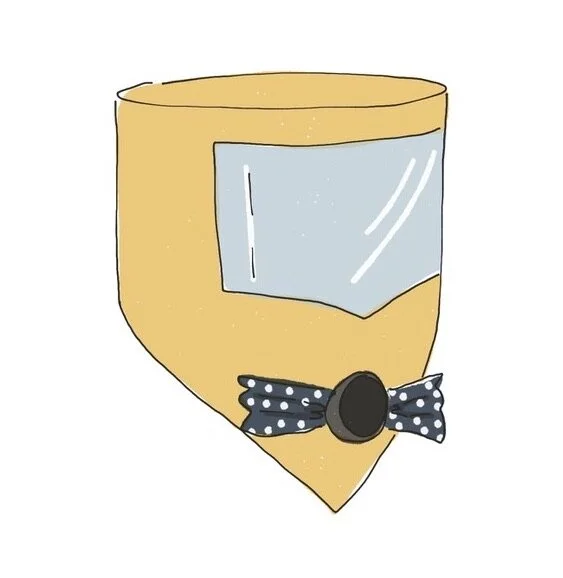In A Pickle
The offices of Whatsthesitch.com Corp are located on the 41st floor of a glossy blue tower downtown. I spend many contemplative hours in my corner office staring across at the panes on an adjacent tower, straining to see if my diminutive, distant reflection is looking back. Oh, how I want to meet the eyes of that wavering homunculized sheen, for him to give me a thumbs up in response. But the neighboring building is too far away and the sunlight doesn’t fully illuminate our urban canopy of steel and silica. All I see are shadows.
Rarely do I venture out of my office into the open bullpen, amongst the regular staff. The grunts. We have so little in common. I prefer to communicate to all of them at once, via overhead speaker.
“Brief announcement: we will be moving up deadlines this week by 48 hours, please submit your completed work by midnight tomorrow.”
“Would Douglas please report to the janitor’s closet? You have been randomly selected for restroom sanitation duties.”
“Quick statement from your leadership: internal surveys suggest morale is at an all-time high. Congratulations! You all continue to be happy and contented with your jobs.”
**BEEEEP** "The afternoon coffee break is now complete, please return to your desks.”
Whenever I do brave a stroll down the central hard-carpeted vein dividing the dense banks of grey cubicles, I always hear phrases I’m unfamiliar with. These tattered people seem to have a dialect all their own, full of outlandish idioms and slang.
I have only just begun to understand snippets of this language, by recording my field trips with a small mic made to look like a ballpoint pen. Then, after returning to the safety of my office, my secretary transcribes the recordings and I search the internet for the chunks I don’t understand. Real espionage-type stuff.
A pattern has emerged from my studies, a language-area in dire need of clarification. In nearly every transcription, I’ve seen at least one of the following phrases:
“I’m in a pinch!” or
“I’m in a pickle!” or
“I’m between a rock and a hard place,” or
“This is a sticky situation,” or
“What a SNAFU!”
After some research, I learned that they all could be categorized as ‘phrases to use when describing a difficult situation’. Now, for myself, an erudite man of taste and preeminence, I don’t require multiple ways to refer to undesirable happenstance. I simply don’t encounter such predicaments routinely and, when I do, I move on quickly and without complaint.
For example, just last week my private laundry service alerted me that there may be delays in dry cleaning due to an unforeseen family emergency. That same day I scuffed the elbow of my favorite blazer on the walk from my European sedan to my carriage house. “Quite unfortunate timing!” I recall saying. That was that.
Or, similarly, I recently became aware of an unfortunate downturn in petroleum futures, mere weeks after I invested a considerable sum in a promising offshore drilling firm. My first reaction was not to despair, but rather, to remind myself of my well-balanced and diversified portfolio. Why, I hardly had reason to be upset at all!
In my life, I haven’t needed a whole catalog of communication options to describe misfortune, which is partly why this project has been so enlightening. I’ve learned much from studying the parlance of the laborers at my corporation. And I wanted to summarize what I’ve learned, so others who aren’t clear on these definitions may also become familiar.
All of the examples included within these explanations were taken from the actual, recorded conversations of my subordinates.
“I’m in a pinch!”
This idiom suggests movement and time-sensitivity, specifically large fingertips tightening around you and the urgency to escape their squeeze. You are in a pinch if you lack the required materials you need to meet an important deadline, but the store carrying watercolors is closed for the weekend. It is to be already running late for a meeting and then realizing you locked the keys in your car. You are in a pinch if you don’t get paid until Friday but the rent is due on Wednesday.
“I’m in a pickle!”
This is clearly the least self-explanatory of the idioms I collected. To be literally in a pickle is somewhat hard to imagine. I know what a pickle is. I even know they are made out of cucumbers! But to be inside of one? My best guess is that to be in a pickle is to be in a situation in which you are pulled in multiple, opposing directions, akin to one’s tastebuds when subject to the sweet and saltiness of a pickle. You are in a pickle if the big game is on the same night as your piano recital (though, admittedly, that one is kind of an easy decision). It is to want the approval of your fiancé’s parents’ before asking for her hand in marriage, but her mom is a federal prosecutor and you are an escaped convict.
“I’m between a rock and a hard place.”
There is some humor in this one, the conceit being that both options are quite hard, rocks and hard places. It also conjures vivid imagery, of a person with their back to a sturdy brick wall, arms extended against a large boulder leaning into them, straining to avoid being squashed. This phrase is used when caught between two options, neither of them desirable.
For example, you are between a rock and a hard place when you are at a party and have been eating more than your share of the buffalo chicken wings and the host announces, “We are officially out of toilet paper!” Or if you have a job that you really love, where you’ve been steadily climbing the corporate ranks, you can see yourself with this organization for years and you don’t want anything to come between you and your dreams... but your boss is trying to set you up with his daughter, and it doesn’t seem like he’ll take, “No,” for an answer. And she’s a Flat-Earther.
“This is a sticky situation.”
This describes a set of circumstances that are difficult to extricate oneself from. The situation has gripped its victim, who has become stuck, and there doesn’t seem to be an easy way out. It is used less specifically than most of these other phrases, and therefore has a lot of overlap with being in between a rock and a hard place or being in a pickle. Sticky situations are also quite similar to hairy situations, though the latter seem to be more associated with serious injury or death.
You are in a sticky situation when you find a briefcase of cash on the street without any identifying information, so you take it and spend wildly, on extravagant meals and parties with South American stimulants and high-end escorts, and this lasts for a few hysterical nights before waking groggily late one morning to a knock on the door, and through the peephole you see a large man with crossed arms wearing a dark suit and, even though it is cloudy outside and he is indoors, aviator sunglasses. This might be better classified as a hairy situation if the first man is accompanied by a second man holding a beefy firearm.
“What a SNAFU!”
This acronym was originally American military slang for, “Situation Normal: All Fucked Up.” It is thought to have originated in and around World War II. It referred to situations where there was a clear mistake or error, and that this was, unfortunately, the normal state of affairs. In our modern era it is used most commonly in reference to a huge blunder by administration or leadership. For example, you might say, “What a SNAFU!” if the struggling online magazine you work for was poised to sign a big new contract with one of their most loyal advertisers, but your CEO forgot to sign the paperwork and the advertiser decided to take their money elsewhere.
Or you could shake your head and say, “Such a SNAFU,” if that same CEO had been secretly recording conversations around the office and this information became glaringly public after he posted a strange article about his, “research into the vocabular trends of laborers,” on the company website.



